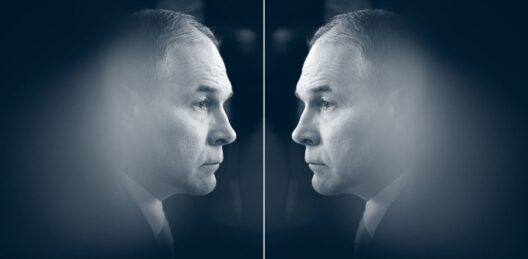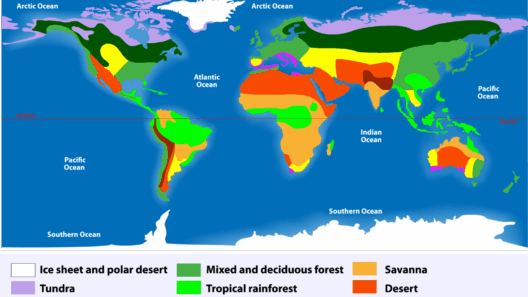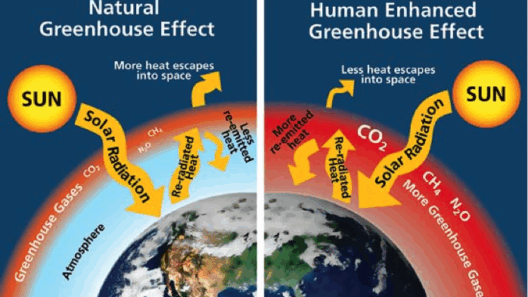Climate change, a phenomenon characterized by long-term alterations in temperature and weather patterns, has increasingly become a focal point of political and social discourse. This nexus between environmental science and political engagement is not merely incidental but deeply entangled with a myriad of sociopolitical dynamics, economic considerations, and ethical debates. Understanding why climate change is a political issue requires an exploration of several interlinked dimensions: governance, economic interests, public perception, and ethical responsibility.
At the heart of the political dimension of climate change lies governance. Governments worldwide hold a crucial role in orchestrating the policies and regulations necessary to mitigate carbon emissions and foster sustainable practices. The Kyoto Protocol and the Paris Agreement stand as monumental efforts in this arena, aimed at uniting nations in a collective endeavor to combat climate change. However, the effectiveness of these agreements often hinges on the political will of individual nation-states. Political leaders must navigate complex geopolitical landscapes, wherein national interests frequently clash with global imperatives. This interplay underscores that climate change is not merely an environmental issue but a multifaceted political challenge demanding cooperative action across borders.
Economic interests serve as another critical lens through which to view climate change as a political issue. The energy sector, which remains a cornerstone of global economies, is profoundly affected by climate change discourse. Fossil fuel industries, for instance, are often at odds with the burgeoning renewable energy sector. The transition towards green technologies poses palpable economic risks for established industries while simultaneously offering substantial opportunities for innovation and job creation. This dichotomy generates fierce political debate about the future of energy, economic stability, and job security. Politicians may find themselves beholden to influential lobby groups or constituents whose livelihoods depend on traditional energy sources, complicating their stance on climate regulations. Consequently, the economic calculus influences their policy decisions, rendering climate change a hotly contested political topic.
Public perception and ideological perspectives significantly impact the political landscape surrounding climate change. Surveys indicate a growing recognition of climate change among the general populace, yet this acknowledgment does not uniformly translate into political action. Ideological divides often emerge, with climate change discourse framed through a partisan lens. In some regions, climate action tends to be endorsed primarily by left-leaning parties, who typically emphasize environmental responsibility and transformative policies. Conversely, conservative factions may resist such measures, framing them as disruptive or economically burdensome. These ideological undercurrents create barriers to consensus, making it exceedingly difficult to forge unified climate policies. The polarization evident in climate change discussions highlights how societal beliefs about the environment are often inexorably tied to broader political affiliations.
Furthermore, the ethical dimension of climate change cannot be overlooked in this political discourse. Ethical considerations around climate change often revolve around concepts of justice and equity. The ramifications of climate change disproportionately affect vulnerable populations, particularly in developing countries, exacerbating existing inequalities. As the impacts of climate change worsen—manifesting in more severe weather events, droughts, and rising sea levels—questions arise about the moral obligation of wealthier nations to assist those who contribute least to greenhouse gas emissions but suffer most from its consequences. Such ethical dilemmas complicate political negotiations both domestically and internationally, as they necessitate the balancing of self-interest with a commitment to global solidarity.
Moreover, the temporal aspect of climate change exacerbates its political nature. The urgency of addressing climate change is often at odds with the slower pace of political decision-making processes. Long-term environmental strategies can clash with the immediate concerns of voters and the politically expedient actions that governments typically favor. Politicians frequently respond to short-term crises, leading to a myopic focus on immediate economic concerns or electoral success rather than the systemic changes necessary to effectively address climate change. The incongruence between urgency and political action has further entrenched climate change as an ongoing political issue, evoking urgent calls for transformative leadership.
The role of misinformation and the dissemination of misleading narratives surrounding climate science also feeds the complexity of the political landscape related to climate change. Campaigns by various interest groups have targeted public understanding of climate issues, often sowing doubt regarding the scientific consensus on climate change. The politicization of climate science—whether through denialism or selective acceptance—has generated considerable confusion, leading to public ambivalence and skepticism. Such misinformation campaigns serve distinct political objectives, polarizing views and further complicating the discourse surrounding necessary climate policies.
Finally, the intersection of climate change with technology and innovation adds another layer to its political significance. The push for advanced technologies in renewable energy, carbon capture, and sustainable agriculture introduces an element of competition on the global stage. Nations seek to assert their dominance in emerging markets tied to green technologies, leading to a race not only for economic leadership but also for geopolitical influence. This context intensifies the political stakes involved in climate discussions, as nations navigate both collaboration and competition regarding technological advancements designed to combat climate change.
In conclusion, climate change is profoundly political, shaped by interconnections between governance, economics, public perception, ethical considerations, and technological competition. The multi-dimensional nature of this global challenge necessitates thoughtful and coordinated political responses. As climate impacts continue to escalate, addressing climate change will remain a vital political issue, demanding collective action and innovative solutions to ensure a sustainable future for all.







